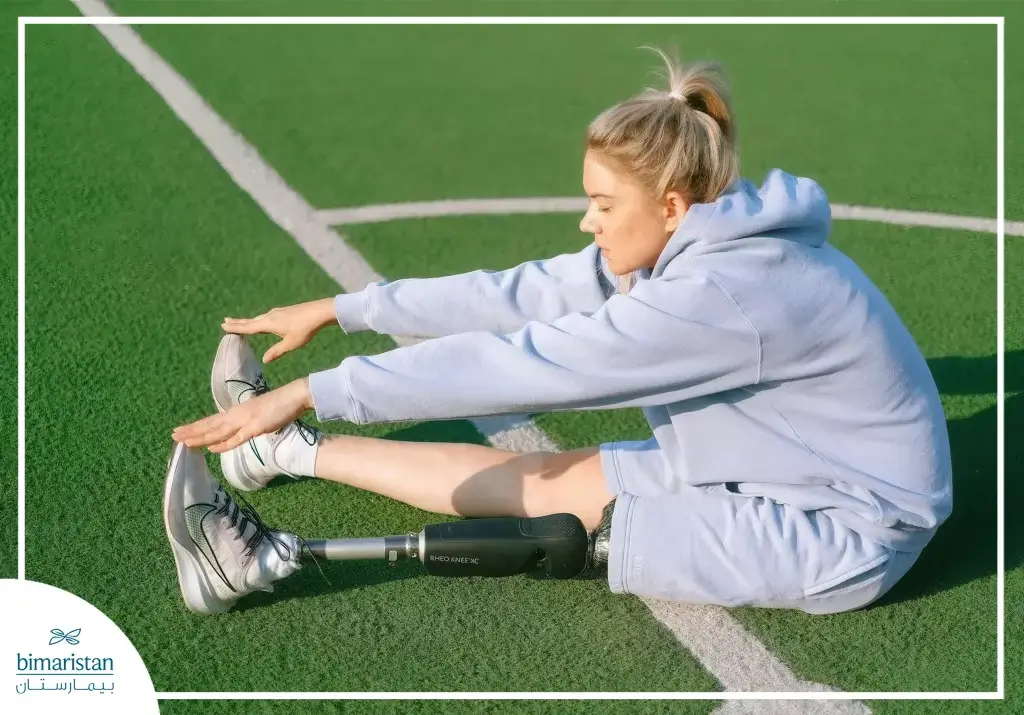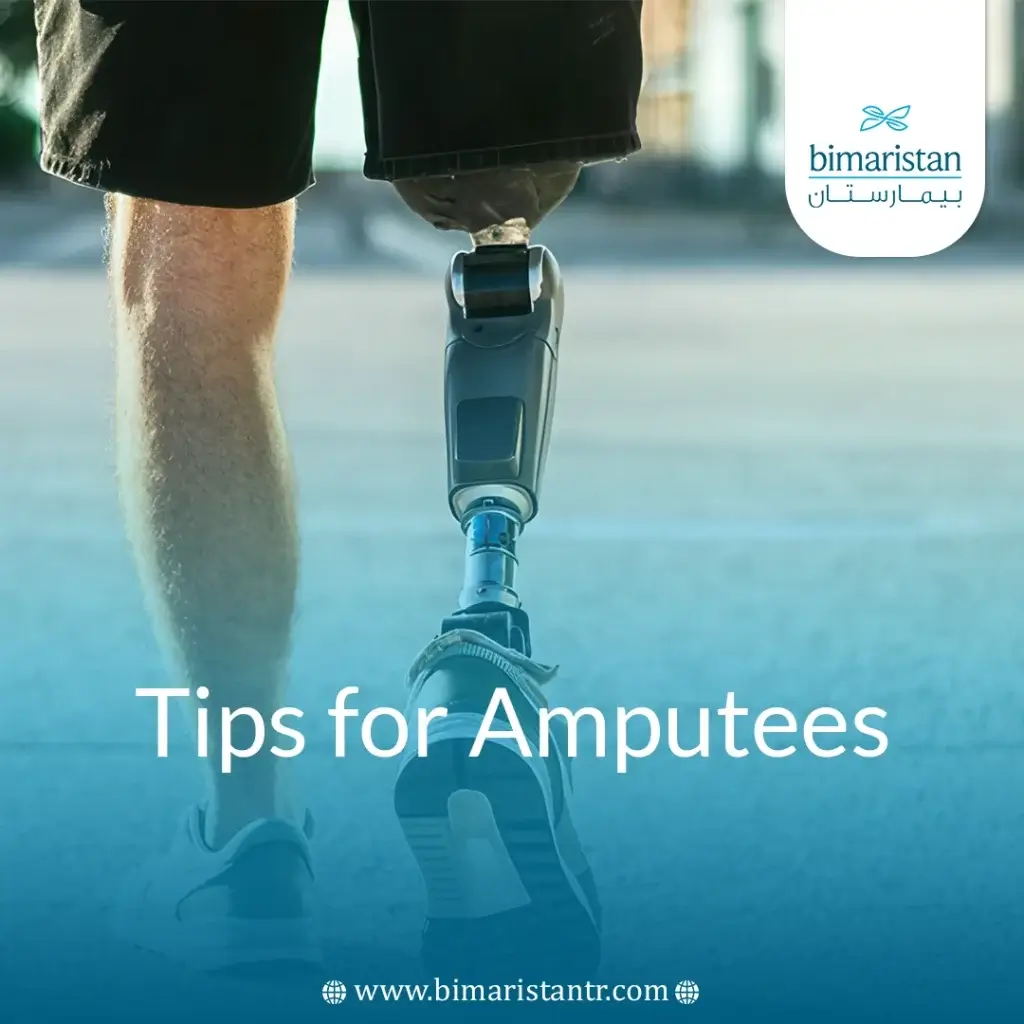Losing a limb is not just a physical event; it represents a significant shift in one’s mental and emotional landscape. The initial aftermath of amputation often brings a surge of shock, fear, and profound loss. But what if healing begins not only in the hospital, but in your mindset? In this article, we explore tips for amputees that promote emotional recovery, foster resilience, and pave the way to a life of renewed strength and stability.
How does amputation affect mental health?
Losing a limb can trigger a profound and enduring psychological impact that goes beyond the trauma of the event itself. Emotional challenges like depression, anxiety, and post-traumatic stress disorder often emerge, particularly in amputations caused by accidents or extreme experiences. Tips for amputees that address grief, body image issues, and challenges are vital for embracing a new physical identity with resilience and compassion.
Depression and anxiety
Depression is one of the most common psychological disorders after amputation. Research shows that about one-third of amputees suffer from various degrees of depression or clinical depressive symptoms. Anxiety is also common, especially in the early stages of recovery when the patient is struggling with new daily challenges. Factors leading to depression and anxiety include:
- The emotional and physical sense of loss
- Feeling self-stigmatized or perceived negatively by society
- Difficulty adapting to disability and its impact on quality of life
Post-traumatic stress disorder (PTSD)
Amputation resulting from accidents or severe physical trauma may result in the development of PTSD symptoms such as nightmares, flashbacks, and sudden anxiety attacks. Other manifestations include outbursts of anger, social isolation, insomnia, and unpredictable emotional behaviors.
Other psychological effects
- Phantom limb pain: This is a common phenomenon after amputation and can cause the patient additional psychological distress.
- Social isolation: As a result of changes in physical appearance or physical ability, some patients may withdraw from social interaction.
- Loss of independence: Relying on others for some daily tasks can deepen feelings of vulnerability or incompetence.
Factors influencing the severity of psychological impact
- Psychological characteristics before amputation: People with a history of anxiety disorders or depression are more likely to be psychologically vulnerable after amputation.
- Impact on function and daily life: Losing the ability to work or perform normal activities can significantly increase stress.
- Social support: The less support you receive from family or community, the more likely you are to develop depression or anxiety.
- The nature of the trauma: The severity or abruptness of the amputation significantly impacts the patient’s psychological well-being.
Stages of psychological adaptation after amputation
Amputees go through a complex psychological journey that sometimes begins before surgery and extends beyond physical recovery, including emotional ups and downs and varying stages of grief, coping, and even thriving.
- Pre-operative phase (in cases of planned amputation): In some cases, amputation is an expected and necessary step, especially when the goal is to end ongoing suffering due to chronic pain or terminal illness. During this stage, feelings of relief are intertwined with fear of the unknown as the patient starts to adapt to their new reality.
- Immediate post-operative phase: This phase lasts from hours to days and focuses on initial physical recovery and dealing with the immediate psychological trauma of losing the limb. The patient may experience emotional numbness or denial, which are normal reactions.
- In-hospital rehabilitation: This phase marks a turning point in adaptation as the patient begins to interact with a multidisciplinary team that includes physiotherapists, prosthetists, and psychological support.
- Rehabilitation at home and community integration: Once back at home, the full impact of the loss is felt as the patient begins to test their abilities in daily life and may face new challenges that require additional support to rebuild routines.
- Depression and anxiety: Studies show that a large percentage of amputees experience depressive symptoms such as low energy, loss of interest, or withdrawal. Anxiety can also be triggered by fear of losing bodily functions or an uncertain future.
- Acceptance and reconciliation: This is the stage where the individual accepts their loss, regains their sense of control, and rebuilds their daily routines.
- Normalization phase: The patient begins to establish new routines that match their current abilities and gradually returns to the activities they missed.
- Post-traumatic Growth: Some individuals reach a state of profound positive adaptation, feeling stronger and more self-aware than before. They may also become an inspiration to others by sharing their experiences or helping other amputees.
The role of family and community support in improving psychological well-being
Family and community support are essential elements in the psychological recovery journey following an amputation. They help foster a sense of belonging, reduce stress, and build emotional resilience. By applying proven tips for amputees, such as embracing social connections and seeking communal involvement, patients can benefit from both practical and emotional support, thereby improving their mental well-being and accelerating the adaptation process.
Family support
- Emotional support: The family provides a safe environment in which the individual can freely express their feelings and receive reassurance and containment, which alleviates feelings of isolation and closure.
- Practical support: The family provides support by helping the individual with daily tasks during vulnerable times, alleviating their burden and allowing them to concentrate on recovery.
- Reduce stigma: By understanding mental health issues, families can reduce stigma, break the silence, and encourage patients to seek professional support.
- Role modeling and resilience: Positive behaviors and healthy coping strategies in family members reflect on the patient and enhance their ability to develop effective coping skills, thereby increasing their psychological resilience.
Community support
- A sense of belonging: Communities provide social and interactive spaces that promote integration, giving individuals a sense that they are not alone in their experience.
- Shared experiences: Through support groups, individuals can share experiences and learn effective coping strategies from others who have gone through a similar experience.
- Access to resources: Communities play an important role in facilitating access to mental health services, rehabilitation centers, and social activities that support recovery.
How do prosthetics help improve a patient’s mental well-being?
Prosthetics play a crucial role in improving the mental well-being of amputees, addressing not only motor skills but also enhancing emotional balance, sense of identity, and independence.
- Restore independence and self-confidence: Prosthetics enable patients to regain the ability to perform daily activities, such as walking, dressing, and cooking, which enhances their sense of self-efficacy and independence. The return to their favorite activities raises their self-confidence and restores their sense of control over their lives.
- Enhance body image and self-esteem: The use of prosthetic limbs helps reduce feelings of inferiority or self-consciousness associated with limb loss. Modern designs are characterized by their similarity to the natural limb, which provides the user with greater comfort in their appearance and increases their confidence during social interactions. Some individuals are even creative in customizing their limbs to express their personality, turning them from a symbol of loss to a symbol of strength and uniqueness.
- Support emotional healing and build psychological resilience: Prosthetics can help reduce feelings of sadness, frustration, and fear by restoring a sense of control over one’s life and enabling individuals to achieve their goals. Additionally, prosthetics enhance resilience and assist individuals in overcoming emotional trauma by helping them maintain their sense of identity and self-continuity before and after amputation.
- Encourages social integration and facilitates communication: The mobility gained from prosthetics improves opportunities to participate in social events and community activities, reducing isolation.

Tips for amputees to deal with the difficult psychological phase
Amputation is a traumatic event that often brings deep psychological consequences, far beyond the initial physical pain. Feelings of sadness, anxiety, and depression are common during this transition. However, individuals can overcome these challenges and start their recovery journey by applying effective strategies. These tips for amputees promote resilience, mental clarity, and personal strength, guiding them toward emotional healing and a more stable future.
- Recognize and express your feelings: It is normal to experience a range of emotions, including sadness, anger, or frustration, after undergoing an amputation. The important thing is not to suppress these feelings, but to express them in healthy ways such as talking to a trusted person, writing or drawing, and seeking the help of a psychologist.
- Get specialized psychological support: A psychotherapist can help with PTSD and body image issues. It’s advisable to seek out professionals who have experience working with amputations to provide more personalized and effective support.
- Build a strong support network: Family and friends are an essential pillar of support. Still, amputee support groups can also provide an environment rich with shared experiences and real-life advice, fostering a sense of understanding and belonging.
- Focus on rehabilitation and goal setting: Integration into physical rehabilitation programs restores control and independence. Setting small, attainable goals motivates patients and boosts self-confidence. Also, celebrating achievements, no matter how small, enhances motivation and builds resilience.
- Adopting a positive mindset and practicing self-care: Maintaining an optimistic outlook and focusing on strengths rather than weaknesses has a significant impact on psychological well-being.
Losing a limb is a major challenge, both physically and emotionally, but it doesn’t mark the end of a fulfilling life or extinguish hope. With the right tips for amputees, such as opening up emotionally, consulting healthcare professionals, and engaging in rehabilitation plans, individuals can restore their equilibrium and rebuild their lives with renewed confidence and inner strength.
Sources:
- NHS. (2023, February 17). Amputation. NHS. Retrieved July 21, 2025NHS. (2023, February 17). Amputation. NHS. Retrieved July 21, 2025
- Molina, C. S., & Faulk, J. B. (2022, August 22). Lower extremity amputation. In StatPearls. Treasure Island, FL: StatPearls Publishing. Retrieved July 19, 2025, from



